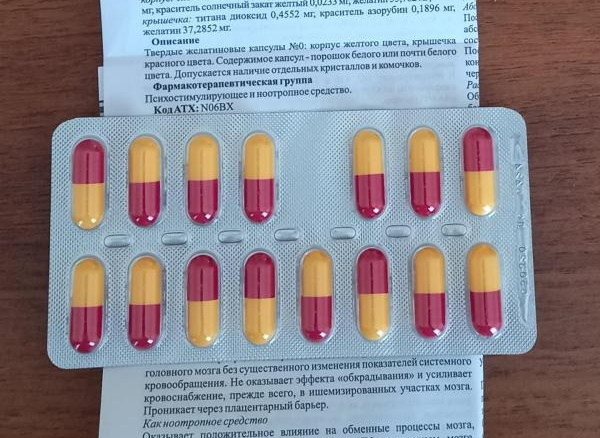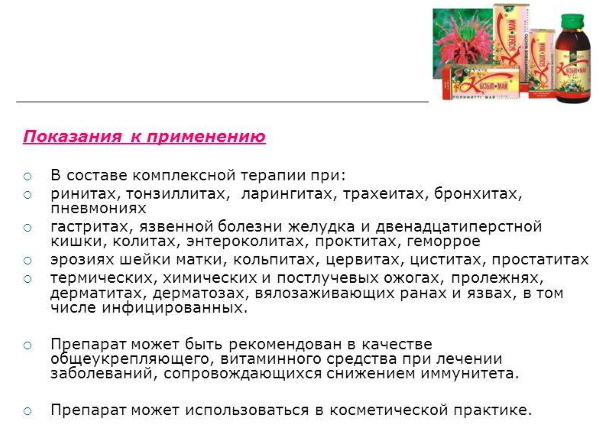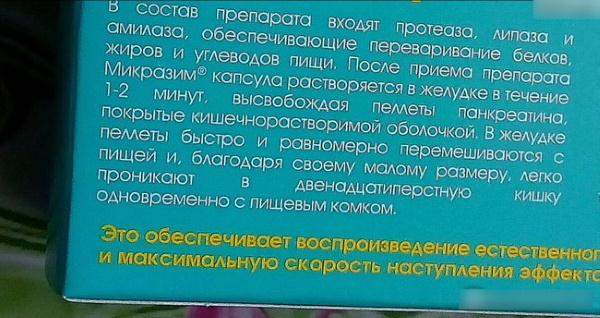Content
- Types and mechanisms of action of drugs for the disorder for children
- Rehydrating agents
- Enterosorbents
- Antibiotics
- Probiotics
- Enzyme preparations
- Antidiarrheal drugs
- Indications for the use of antidiarrheal drugs for children
- Contraindications
- List of the best drugs and instructions for use
- Children from birth to one year
- From 1 year to 5 years
- 6 years and older
- Drug prices
- Video on the treatment of diarrhea in children
Antidiarrheal drugs - a group of drugs, which are actively used for adults and children in order to relieve the symptoms of intestinal pathologies accompanied by stool disorder. Medicines can contain different components, therefore they have different effects on the body. Depending on the cause of the disorder, the most effective drugs are selected for each patient individually.
Types and mechanisms of action of drugs for the disorder for children
Preparations for diarrhea belong to different groups of medicines, contain active ingredients with different mechanisms of action. Some eliminate the cause of the disorder, others relieve the accompanying symptoms and complications that arise against the background of a prolonged course of the disorder.
Rehydrating agents
A group of drugs for the symptomatic treatment of diarrhea, helping to restore the balance of fluid and components that the patient loses during frequent bowel movements. The mechanism of action of the funds is based on the ability of the ingredients to be quickly absorbed in the body, restoring the electrolyte balance.
The drugs are usually available in powder form, which is used to make a solution that is taken by mouth. The composition contains salts and ions of some mineral components. In most cases, the composition of medicines is close to the chemical composition of the natural biological fluid present in the human body.
The use of drugs in this group avoids the development of dehydration, which is often observed with prolonged diarrhea. Such complications are especially dangerous for children under 1 year old. With frequent loose stools, dehydration can develop in a child for several hours, disrupts the functioning of the nervous system and can provoke irreversible changes in tissues.
Enterosorbents
Antidiarrheal drugs for children may contain ingredients that help eliminate toxins from the body that provoke diarrhea. Such funds are called enterosorbents; in many diseases they are irreplaceable. The principle of action of the funds is to bind toxic substances with their subsequent excretion with feces.
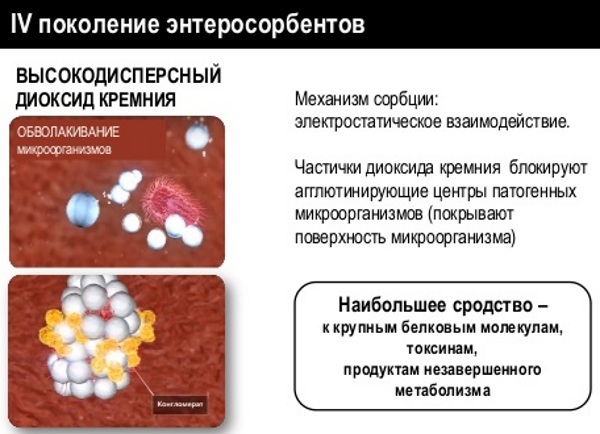
The use of medicines is justified in the case of the development of diarrhea against the background of poisoning of the body with food, drinks, medicines. Often drugs are prescribed for the negative effects of radiation or harmful environmental factors.
The form of release of funds is different. They can be presented as powders, gels, pastes, tablets or capsules.
Antibiotics
The development of diarrhea against the background of infectious diseases requires the appointment of antibacterial drugs. Usually, their action is directed directly to the destruction of microbes in the intestines of patients.
The mechanism of the therapeutic effect consists in the destruction of pathogenic bacteria or stopping their growth and reproduction. As a result, the body is cleansed of bacteria and their waste products, which leads to stopping diarrhea and improving the general condition.
Antibacterial medicines have a different composition, are selected depending on the cause of the disorder and the severity of symptoms. The drugs can be produced in the form of tablets, suspensions, capsules.
Probiotics
Medicines in this group contain components that normalize the intestinal microflora. With diarrhea of various origins, the beneficial microflora is washed out, which leads to frequent loose stools, deterioration of the general condition.
Probiotic Medicines:
- stimulate the colonization of the intestines with beneficial bacteria;
- stimulate the immune system;
- prevents the development of complications against the background of the loss of a large amount of fluid.
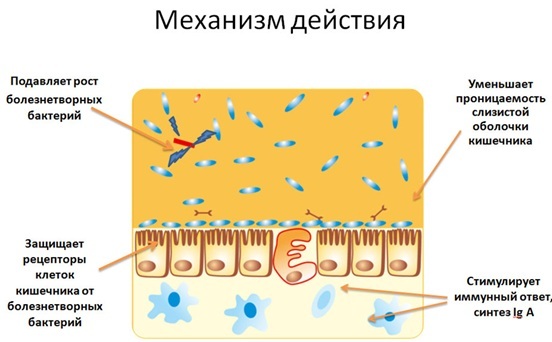
The drugs are available in different dosage forms, can be used as an auxiliary method of therapy or as an independent way to eliminate symptoms.
Enzyme preparations
Antidiarrheal medicines may contain enzymes that stimulate digestion. They are often necessary for children who develop diarrhea as a result of a deficiency of enzymes necessary for the normal digestion of food.
The preparations contain pancreatic enzymes in different dosages, which, when taken orally break down food components and lead to their complete processing in different parts of the digestive path.
Medicines are available in many different forms.
Antidiarrheal drugs
Medicines with antidiarrheal properties contain synthetic components that affect intestinal motility. The action of the drugs helps to prevent the reoccurrence of the disorder, as well as the development of complications as a result of the loss of a large amount of fluid.
The funds of this group are also available in different forms, but they are usually prescribed to children over 2 years old, which is associated with pronounced properties and aggressive effects on the body. These drugs are considered potent, but are often used in combination with other drugs to relieve diarrhea and associated symptoms.
Indications for the use of antidiarrheal drugs for children
Medicines with antidiarrheal properties should only be used as directed by a physician, especially when treating children.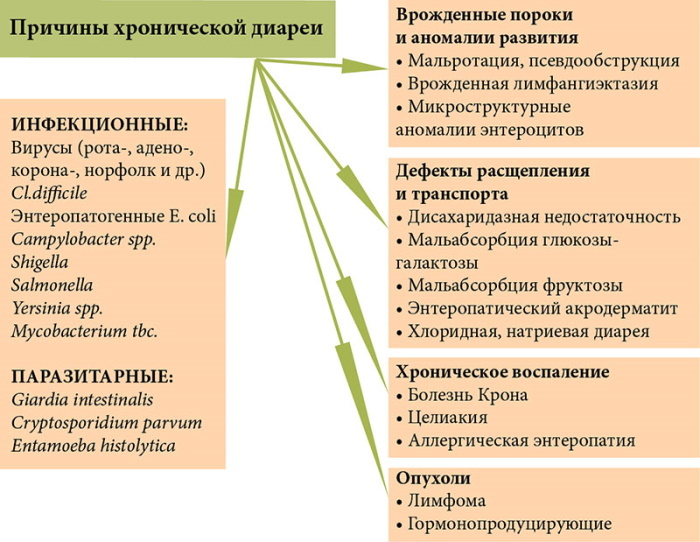
The main indications for the use of drugs are the following conditions:
- Frequent loose stools of unspecified origin with repeated bowel movements during the day.
- Poisoning the body with food, drinks, toxic substances.
- Upset stool against the background of an infectious intestinal lesion.
- Frequent bowel movements in patients with pathologies of different parts of the intestine.
- The use of foods that disrupt digestion, improper composition of the diet, which does not take into account the combination of certain foods.
- The appearance of atypical impurities in the feces, discoloration. Often, infectious and other diseases lead to the appearance of foamy stools and other abnormalities. The dark color of the stool is considered a reason for immediate medical attention.
- The development in patients of concomitant deviations in the form of vomiting, fever, rash.
The use of medications from different groups is considered necessary in the case when a child develops neurological disorders, for example, seizures, other complications.
Contraindications
Antidiarrheals for children may not always be used immediately after symptoms of the disorder appear. Many medicines are intended for patients over 2 years old, others have more contraindications and more often provoke the development of complications. Often, drugs with pronounced properties are prescribed only to children over 6 years old.
Contraindications for drug treatment include the following conditions:
- Allergy to any ingredient in the preparation.
- Bowel obstruction.
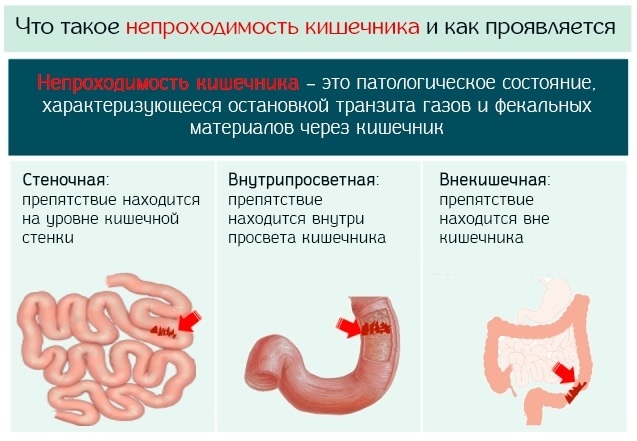
- The appearance of signs of gastrointestinal bleeding. In this case, the color of the stool becomes dark, concomitant disorders appear, blood pressure decreases, and vomiting is observed.
- Acute course of viral liver pathologies.
- Impossibility of oral administration of medications. Sometimes diarrhea is accompanied by repeated vomiting, which does not allow the patient to take the funds by mouth in any form.
- Severe poisoning with toxins and poisons. Sometimes experts do not prescribe funds for several hours after the onset of symptoms, which allows more toxins to be evacuated with feces. Only then are antidiarrheal agents used.
On an individual basis, specialists can determine other contraindications that may not apply to all patients.
List of the best drugs and instructions for use
Depending on the age of the patient and the characteristics of the course of the pathological condition, the most effective means are selected. All products in this group cannot be used for children of any age.
Children from birth to one year
In newborns and patients under 12 months of age, stool disorder can occur with breastfeeding and formula feeding. Often, complications are observed when the mother eats foods that can provoke diarrhea. Many medicines with antidiarrheal properties are contraindicated in children under 1 year of age, but relatively safe medicines can be found to improve the condition.
| A drug | Application features |
| Nifuroxazide | A popular antidiarrheal drug with pronounced properties, which belongs to the group of antibiotics with specific properties. The action of the antibiotic is aimed directly at combating pathogens of intestinal pathologies of bacterial origin. The suspension is intended for the treatment of patients older than 2 months. The dosage is determined individually, depending on the weight. Children from 2 to 6 months receive 2.5 ml of the drug per day, patients older than 6 months take 5 ml per day. The duration of the therapeutic course is 5 days, but sometimes it is allowed to take it for 7 days. Longer courses are not recommended.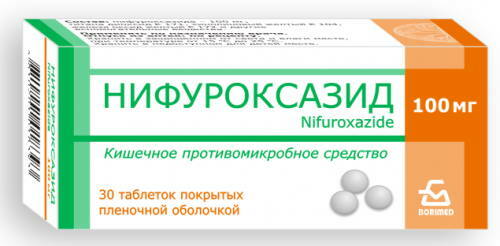
|
| Polysorb | Enterosorbent with pronounced properties, which is allowed to be used from birth with diarrhea of toxic origin. Before taking the powder, dissolve in 50-70 ml of water, after which the resulting product is taken in small doses throughout the day at regular intervals. For children under 6 months, take 0.5 tsp. l. powder per day, for children over 6 months, the dose is increased to 1 tsp. l. The duration of therapy can be 2 weeks. |
| Regidron | Powder with rehydrating properties, which is used in the long-term course of the disorder in order to replenish the lack of fluid, some important components. For 1 liter of boiled water, you need to take 23.9 g of powder, the child is given the remedy at the rate of 30 ml per 1 kg of weight. The daily rate is divided into several doses during the day at approximately equal intervals. The duration of use rarely exceeds 3 days. The drug can be used for patients from birth. |
| Bifidumbacterin | A drug containing valuable bacteria, prescribed to patients from birth in order to normalize the intestinal microflora in case of disorders. Children under 6 months receive 2 doses per day, patients after 6 months can take 3 doses per day. It is better for children from birth to give a liquid dosage form of the drug. Duration of admission does not exceed 10 days. |
From birth, patients are not prescribed drugs that act directly on intestinal motility. For example, drugs based on loperamide can provoke negative reactions. Patients under 1 year old are allowed to give milk products if they refuse to take them in pure form. Reception is carried out separately from food, which increases efficiency.
From 1 year to 5 years
Antidiarrheal drugs for children over 1 year of age are also selected with caution, since many drugs are contraindicated at this age.
The most effective and relatively safe drugs are considered:
-
Enterosgel is an enterosorbent with pronounced properties, produced in the form of a gel and a paste for oral administration. The medicine is prescribed to patients over 1 year old. The gel and paste are taken orally, washed down with a little water. The dosage for children from 1 year old is 15 g per day, patients from 3 years old are shown the use of 30 g of paste or gel per day. The dosage is recommended to be divided into 2-4 doses during the day. The duration of treatment is 5 days.
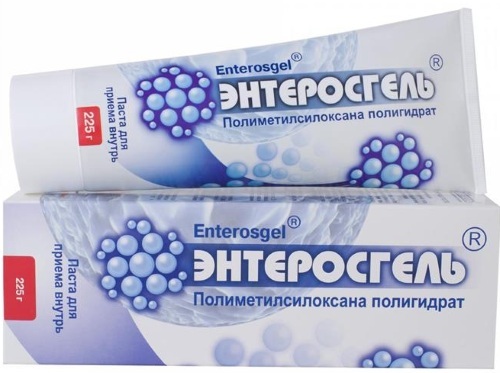
- Lactofiltrum can be used in combination with other agents to normalize the intestinal microflora in case of disorder. Children over 1 year old take 0.5 tablets, patients from 3 years old take 1 tablet at a time. Regardless of age, the medicine is taken 3 times a day. Duration of admission does not exceed 5 days.
- Enterofuril possesses antibacterial and antidiarrheal properties, helps to quickly eliminate the manifestations of the disorder. It is prescribed for children from 1 month. Patients under 3 years old take a suspension of 2.5-5 ml per day, children over 3 years old take 1-2 capsules per day. The duration of therapeutic use rarely exceeds 5 days.
Funds for such patients are selected individually, as well as for the treatment of patients of a different age.
6 years and older
Antidiarrheals for older children are also individually tailored, even when a common stool disorder is diagnosed. Patients from 6 years old can take medications containing potent ingredients, if the need arises.
The most effective drugs:
-
Loperamide It is considered the most effective and effective medicine that helps to quickly stop symptoms and prevent frequent bowel movements with the simultaneous loss of large amounts of fluids. Tablets and capsules are indicated for patients over 6 years of age. The daily dosage ranges from 2-4 capsules or tablets, depending on the severity of the manifestations. The use of the product is allowed for 3 days.
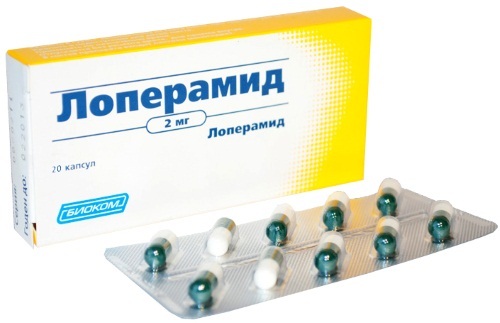
-
Creon is an enzyme medication that is used in the case when a stool disorder is provoked by a malfunction of the pancreas and digestion. The product contains the necessary enzymes, helps to normalize the condition when taken within 7-10 days. The dosage for the patient per day is 1-2 capsules, it must be taken with meals, which increases efficiency.
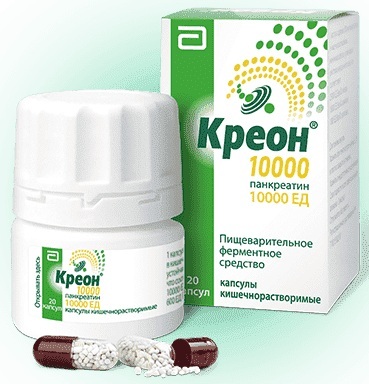
- Linex - capsules with a high content of probiotics, which are prescribed simultaneously with drugs from other groups to restore the intestinal microflora. The drug is available in the form of capsules, which are taken orally by adults and children over 6 years old. The daily dosage for children is 3 capsules, it is not consumed immediately, it is divided into 3 doses during the day. The duration of application is 7 days.
Depending on the cause of the disorder, the doctor will prescribe the most effective medication. It is not recommended for parents to give their child any medications on their own.
Drug prices
The cost of drugs of different groups is different, which is associated with the pharmaceutical company that produces them, as well as the components:
- You can buy the enzyme Creon for about 1200-1400 rubles.
- The cost of Regidron is approximately 20-30 rubles. for a bag of powder.
- The price of Polisorb and Enterosgel ranges from 600-900 rubles.
- Nifuroxazide and Enterofuril can be purchased for 200-350 rubles.
- Linex and Laktofiltrum costs about 230-340 rubles. Bifidumbacterin can be purchased for 90-140 rubles.
- Loperamide is considered an affordable remedy and costs about 90-130 rubles.
When choosing, not the cost of the medicine is taken into account, but its effect on the child's body and the patient's age. Some expensive drugs can negatively affect the condition of patients. It is especially important not to replace original medicines with analogs with more affordable prices on your own.
Antidiarrheal drugs are often prescribed for the treatment of children of different ages with disorders of an infectious, toxic and other origin. Preparations may contain different components and have different properties. For the treatment of the disorder, drugs from several groups can be used, which makes it possible to have a complex effect on the digestive tract.
Video on the treatment of diarrhea in children
Komarovsky about the treatment of diarrhea:

